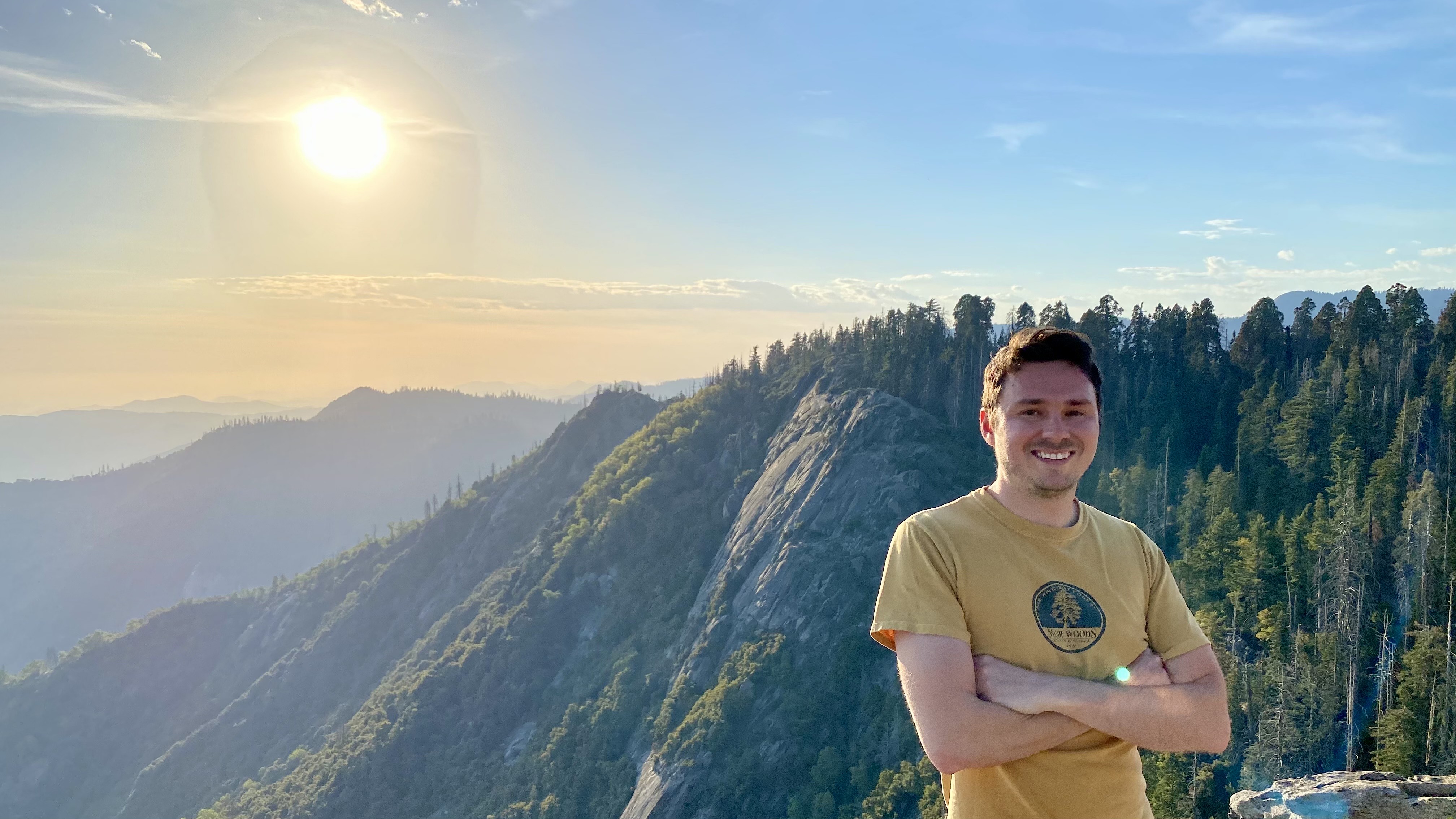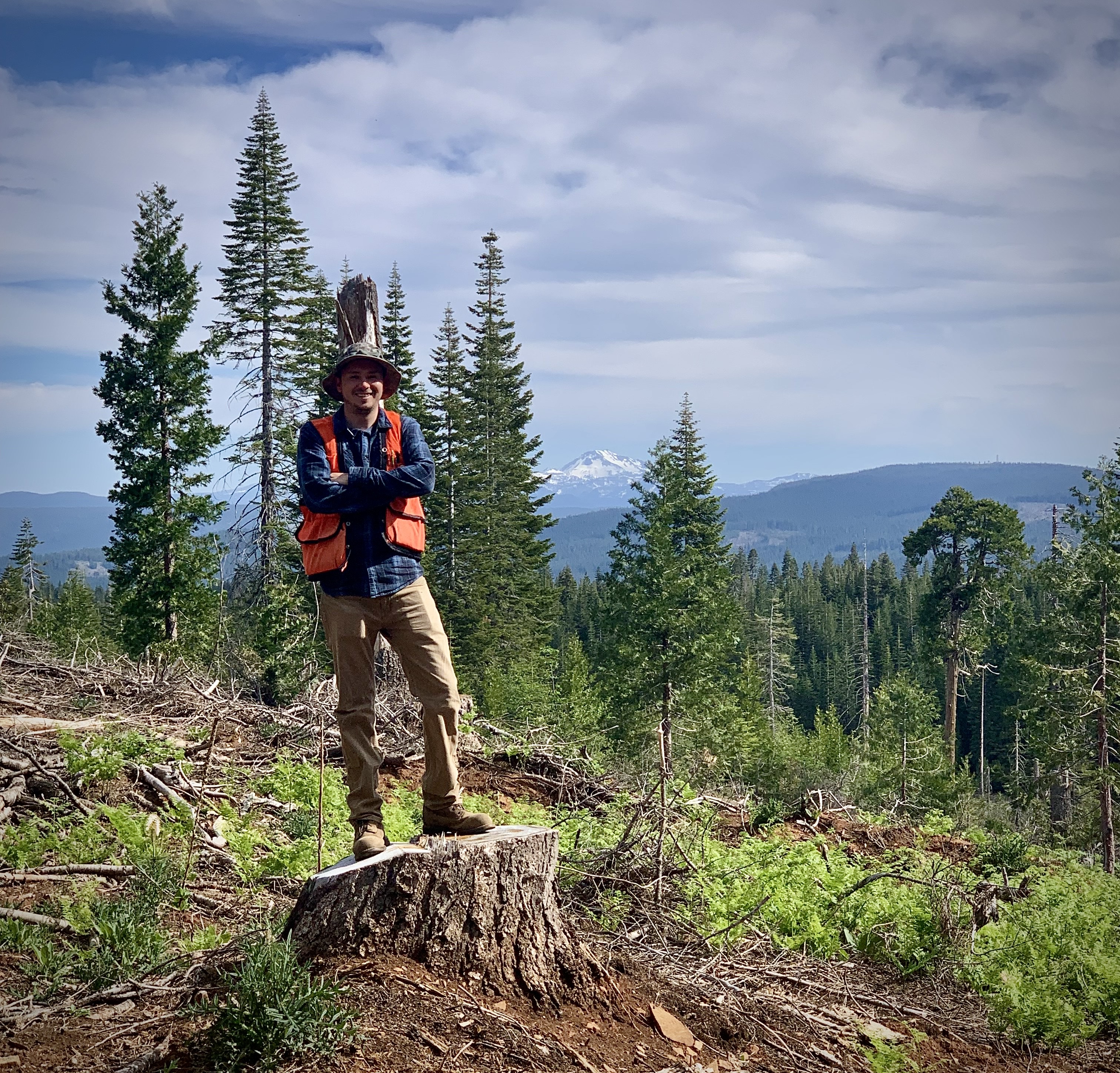City High In the News
City Charter High School's amazing students, teachers, alumni and Pittsburgh's community partners make a difference everyday. Read about their achievements both in-school and out!
Alumni Spotlight: James Cwiklik, Class of 2006
In the Alumni Highlights series, we have caught up with City High alumni to see what they’ve been up to post-graduation. This installment focuses on James Cwiklik of City High Class of 2006.
--

James Cwiklik (Class of 2006) pictured at a scenic view of the Sierra Nevada mountains.
Q: What did you think would be your career path when you were a student at City High? How has that changed or stayed the same after graduating high school?
As a high school student, I thought I would go to culinary school and become a chef. One of my City High teachers—Jackie Perhach—helped me get a job in the kitchen of a fine-dining restaurant and I began my culinary training at the age of fifteen. Through this experience, I slowly came to the realization that I didn’t want to be a chef.
After graduating from City High, I put all of my efforts into college and began to move away from the culinary world. By going to community college, university, and finally attaining a Master's degree in forestry and ecosystem management, my career path took a whole new direction for natural resource management. Sometimes you need to learn what you don't like before you find what interests you.
Q: Tell us more about your post high school educational experiences!
I went to the Community College of Allegheny County (CCAC) for 2 years after graduating from high school. I took a lot of my general education credit classes there, and discovered new interests in history, philosophy, and religious studies. I then transferred to the University of Pittsburgh and obtained my Bachelor's degree in Environmental Studies with minors in History and Religious Studies. After completing my Bachelor’s, I decided to go to school for my Master’s degree in Forestry and Ecosystem Management at Michigan Technological University.
Q: What was your internship experience at City High like? How did it inform your college experience and/or career trajectory?
My internship experience played off of my job in the fine-dining restaurant that I'd been working at since I was fifteen. At the time, I was working at this Italian restaurant and I assumed I would be going into a career in the culinary world. Because of this, my internship extended my work hours at the restaurant with the goal to learn the business side. This internship taught me what a career in that industry would look like, and it wasn't a career that I wanted. It helped me decide to go in a new direction. With that said, I did devlop a solid work ethic at the restaurant. I learned to manage myself in high stress situations—something that I still utilize to this day.
Q: How did City High prepare you for life after high school?
City High prepared me for life after high school by giving me the confidence to succeed in the next steps of my academic career. We had the opportunity to take a course at community college in our senior year. This experience dramatically changed my perspective and plans after graduating.
Q: What do you think was the most important skill that you learned at City High and use in your adult life?
The emphasis on technology with respect to computer programs, troubleshooting, and the skills needed to solve problems started at City High.
James's City High senior photo
Q: Tell us about your current role and organization!
I currently work for a company called Greenline Climate as a Senior Carbon Manager. Greenline Climate is focused on the development and operation of high-quality forest carbon offset projects. Their projects are designed to assist with the fight against climate change by offsetting CO2 emissions through forest conservation and sustainable forest management.
My role specifically is responsible for the development, coordination and completion of forest carbon offset projects. This involves forest carbon inventory design and implementation, forest carbon modelling, portfolio management, and completing the audit and verification process.
Q: What do you love most about your current role?
What I love most about my current role is developing conservation-focused forest management projects for tribal land owners. These projects bring in revenue for their tribe while also fighting climate change. It is a win-win situation, and a special opportunity to be involved in. Through my job, I have had the opportunity to work all across the country, and even in Africa, which has given me several unique experiences.
Q: What advice would you have to someone interested in pursuing a career in your field?
Utilize your local resources! Your local resources can be helpful in attaining a formal education that allows you to work for organizations that develop your skill sets towards ecological management, sustainable forestry, and biometrics (statistical analysis of biological data), which are all important skills to have in forestry careers.
Q: City High is big on preparing students for the real world by promoting work-life balance. How do you maintain work-life balance? Where do you find joy in your life outside of work?
The best strategy to having a balanced work-life is through assertive measures such as setting boundaries with yourself and your employer, implementing effective time management techniques, and learning to give yourself a break. Communication and task prioritization skills were things that I learned over time to keep things balanced. I like to call it life-work balance. A simple shift in perspective can change your priorities almost immediately. There is always more work to be done, it is your job to manage it effectively for yourself. No one else can do it for you.Q: Can you share some advice for current City High students?
By virtue of being young, you have power. You have the power to succeed or fail in life. It's largely a matter of choice. Choose a successful version of yourself. Identify what that looks like for you and aim for it. You don't have to have it all figured out (I still don't) but know that change is inevitable. By making decisions with an upward aim towards a successful future version of yourself, the results will speak for themselves.
It's largely just an attitude. Adopt and develop an attitude to strive upwards. The right attitude can overcome even the most dire of circumstances. A good starting place is college. I'd recommend to most young folks to get an education. Learn what you are truly interested in and pursue skill sets in that interest. The same applies with or without a college education. I recognize that not everyone is suited for college, however, simply trying is half the battle. Know that you can always develop yourself further but the earlier you start, the bigger the results. The longer you wait to "grow up", the further behind everyone else you will be.

James poses on a giant treestump in the Sierra Nevada mountains.
–
If you are a City High alumni and are interested in being highlighted, you can email napolitan@cityhigh.org.